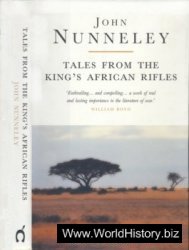Lord Curzon on the Importance of India and Indians to the British Empire
Lord George Nathaniel Curzon (1859-1925) served as viceroy of India from 1898 to 1905 and as foreign secretary from 1919 to 1924. He made his reputation in India, and as a prominent Tory politician he became among the most vocal proponents of the new imperialism. In this speech, Curzon spells out the benefits of empire and underscores British dependence on India.

F you want to save your Colony of Natal from being over-run by a formidable enemy, you ask India for help, and she gives it; if you want to rescue the white men's legations from massacres at Peking, and the need is urgent, you request the Government of India to despatch an expedition, and they despatch it; if you are fighting the Mad Mullah in Somaliland, you soon discover that Indian troops and an Indian general are best qualified for the task, and you ask the Government of India to send them; if you desi re to defend any of your extreme out-posts or coaling stations of the Empire, Aden, Mauritius, Singapore, Hong-Kong, even Tien-tsin or Shan-hai-kwan, it is to the Indian Army that you
Turn; if you want to build a railway to Uganda or in the Soudan, you apply for Indian labour. When the late Mr. Rhodes was engaged in developing your recent acquisition of Rhodesia, he came to me for assistance. It is with Indian coolie labor that you exploit the plantations equally of Demerara and Natal; with Indian trained officers that you irrigate and dam the Nile; with Indian forest officers that you tap the resources of Central Africa and Siam; with Indian surveyors that you explore all the hidden places of the earth. . . . [Moreover,] India is a country where there will be much larger openings for the investment of capital in the future than has hitherto been the case, and where a great work of industrial and commercial exploitation lies before us.
Source: Andrew Porter, ed., The Oxford History of the British Empire, vol. 3, The Nineteenth Century (Oxford: 1999), p. 403.
Questions for Analysis
1. Curzon not only served as viceroy of India and foreign minister but also had extensive knowledge of Afghanistan and Persia. Drawing on his expertise, what did he think was the greatest value of India to the British Empire?
2. Was there any risk involved in the British Empire's reliance on colonial troops? What compensation might Indian soldiers have come to expect for their participation in the defense of empire?
Hostages and British territory by British troops were electrifying news. Pictures of the Scottish highland regiments (wearing wool kilts in the sweltering heat of India) liberating besieged white women and children went up in homes across the United Kingdom. At a political level, British leaders were stunned by how close the revolt had brought them to disaster and were determined never to repeat the same mistakes.
After the mutiny, the British were compelled to reorganize their Indian empire, developing new strategies of rule. The East India Company was abolished, replaced by the British crown. The British raj (or rule) was governed directly, though the British also sought out collaborators and cooperative interest groups. Princely India was left to the local princes, who were subject to British advisers. The British also reorganized the military and tried to change relations among soldiers. Indigenous troops were separated from each other to avoid the kind of fraternization that proved subversive. As one British officer put it, “If one regiment mutinies I should like to have the next so alien that it would fire into it.” Even more than before, the British sought to rule through the Indian upper classes rather than in opposition to them. Queen Victoria, now empress of India, set out the principles of indirect rule: “We shall respect the rights, dignity and honour of native princes as our own, and we desire that they, as well as our own subjects, should enjoy that prosperity and that social advancement which can only be secured by internal peace and good government.”





 World History
World History









